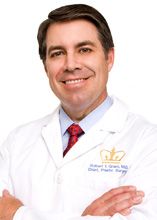Article
Proper Recovery Plan Ensures the Best Plastic Surgery Results
Author(s):
To ensure the best long-term results for patients who undergo plastic surgery, a healthy recovery plan is needed.

We all know a successful cosmetic procedure always starts with a highly trained, board-certified plastic surgeon using the best techniques and tools to achieve a patient’s aesthetic goals. That said, a safe and successful surgery is only the first step. To ensure the best long-term results for patients, a healthy recovery plan is also needed.
Many patients who undergo plastic surgery procedures desire to resume their daily activities as quickly as possible. However, a proper amount of recovery time not only helps to preserve patients’ physical well-being, but also ensures the most beautiful and natural final results.
While post-surgical recovery speed varies from patient to patient and procedure to procedure, rushing the process can lead to complications that may cause damage to the work that has been done, regardless of the specific type of patient or procedure.
Outlined below are my suggested post-surgical practices, which I always strive for my patients to follow to ensure the best results from their cosmetic procedures.
#1. Prepare to heal
Eating right and drinking plenty of fluids at least a few weeks prior to a patient's cosmetic surgery will actually set his or her body up for a successful recovery. A healthy diet provides vital nutrients that promote healing within the body, and since 70% of the body is comprised of water, maintaining proper hydration is vital to proper healing.
#2. Make time to recover
Prior to a patient's surgery, you should always advise him or her to make arrangements that allow for a peaceful recovery, such as taking time off from work. It is essential to ensure your patients do not try to guess how they will feel after surgery or attempt to gauge their abilities too early, because pushing the body too hard can lead to complications that can actually prolong the recovery time.
#3. Ask questions
As your patients prepare for cosmetic procedures, it is important to encourage them to ask questions about how they can best care for themselves after surgery. Understanding what the entire procedure entails will help your patient better recognize what is normal or abnormal during the recovery process. Just like any cosmetic procedure, information is the key to a successful recovery.
#4. Apply ice and heat
Ice and heat are common treatments for pain and swelling after a surgical procedure. Recommending them to your patients can help alleviate their discomfort and speed up their recovery process.
#5. Avoid alcohol and smoking
Alcohol and smoking can actually hinder the patient’s recovery process, since they withdraw essential hydration from the body. Smoking can also slow down the healing process and promote scarring. Therefore, it is very important to make sure your patient abstains from these bad habits post-surgery.
#6. Remember the 3 Rs
The most important tools for post-operative healing are rest, relaxation, and rehabilitation. Recovering from a cosmetic procedure takes its toll on a patient’s body and immune system. Therefore, your patients should give their bodies the time it needs to do what comes naturally. Rest, relaxation, and rehabilitation are the best things patients can do to promote healing after a cosmetic procedure.
--
While post-surgical recovery may feel like a slow, drawn-out process for many patients, ensuring that they follows these steps will not only help to promote healing, but also deliver the patients’ desired results sooner than they might expect. After all, our patients took the time to seek out a top-notch board-certified plastic surgeon, so it is our job to help them achieve the best results possible from their procedures.
Robert T. Grant, MD, MSc, FACS, is Chief of the combined Divisions of Plastic Surgery at New York-Presbyterian Hospital-Columbia University Medical Center and New York-Presbyterian Hospital-Weill Cornell Medical Center. He is also Associate Clinical Professor of Surgery in the College of Physicians and Surgeons at Columbia University and Adjunct Associate Professor of Clinical Surgery at Weill Cornell Medical College. For more information about Dr. Grant or to contact him, visit his website at www.robertgrantmd.com.




